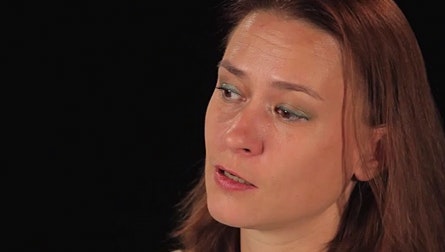
Why Investing in Early Childhood Matters
Early childhood is the most critical phase of human development. It begins before birth, when a baby’s body and brain are being formed, continues through early infancy when key relationships are established and developmental milestones reached, and includes the preschool years and the transition into the early grades of schooling.
Why does early childhood development matter?
Early childhood is a period of rapid physical and mental growth and change. Children learn to move, communicate, and interact with the world, and develop a sense of personal and cultural identity. This period offers the greatest opportunities for positive human development, but it is also a time when children are most at risk. Negative influences on a child’s development during early childhood can be irreversible.
Young children growing up in especially difficult circumstances—severe poverty, malnutrition, wars, and disease—require particular attention. Discrimination based on ethnicity, gender, disability, HIV and AIDS status, class or caste, or political and religious beliefs all adversely affect early childhood. Discrimination can exclude children from full participation in society, reduce survival rates and quality of life, and undermine feelings of well-being and self-esteem.
What are the best ways to improve a child’s early development?
Positive interventions in early childhood work best when they bring together a variety of sectors including nutrition, health, education, and support for parents. Research conclusively demonstrates the impact of well-planned interventions.
Children who live in the most adverse circumstances can make the biggest gains in their intellectual, social, emotional, and physical progress if they have good nutrition, interaction, and relationships early in their lives and have access to high-quality early childhood development services.
These children are healthy and ready for school, finish more years of education, get better jobs, and live longer than their parents. Investing in early childhood programs for the most disadvantaged can break the intergenerational transmission of poverty.
Recognizing the importance of early childhood is also about respecting the rights of every young child, as enshrined in the United Nations Convention on the Rights of the Child. The convention requires families, communities, and states to provide appropriate support for young children’s development, while recognizing the diversity of cultural beliefs and practices that shape childhood. A positive early childhood is both every child’s entitlement and an investment in their—and our—future.
Why is this issue integral to an open society?
The early years are the foundation upon which open societies are built. They offer a unique opportunity to shape healthier, more prosperous, stable, and participatory societies.
Quality early childhood interventions have the greatest impact on children most at risk, offering an unparalleled opportunity to alleviate the effects of social disadvantage and to break cycles of poverty and inequality.
What are the Open Society Foundations doing to support early childhood development?
Through our Early Childhood Program, we aim to improve the quality and availability of early childhood services, including home-based initiatives and community programs as well as preschools. The goal is to both empower and hold accountable government, donors, professionals, civil society organizations, parents, and communities to fulfil their respective roles to guarantee the right of each child to develop to his or her full potential.
We support a variety of groups and individuals working in Early Childhood services in Africa, Europe, Eurasia, the Middle East and Latin America. These include:
- In Europe, we support the Healthy Start Project, which works with Roma communities in Bulgaria to improve birth outcomes, access to healthcare, and family services for Europe’s largest and most excluded ethnic minority.
- In Jordan and Lebanon, we support the Health, Education and Protection Parenting Program, a peer-to-peer parent program that enables the parents of very young refugees and other community members engage in discussions on parenting and child development.
- In Greece, in partnership with the municipality of Thessaloniki, we support Diadrasis, a childcare center which brings both young Greek and refugee children together to play and to learn so that they can develop a greater level of social interaction between communities.
- Across Eswatini, Malawi, Zambia, and Zimbabwe, we work with multiple civil society organizations to address stigma and discrimination in communities and include young children with disabilities in preschool and school.
- In Myanmar, we support civil society groups who work with poor and marginalized communities on a range of community development projects, including early childhood services that aim to address religious and ethnic conflict.
- In Zimbabwe, we support the J.F. Kapnek Trust, which runs an innovative home visiting initiative with mothers and their children to support children’s development through play and other activities
- In sub-Saharan Africa, we support the Africa Early Childhood Network, a network of policymakers, NGOs, and practitioners which is focused on increasing the quality and accessibility of early childhood services.